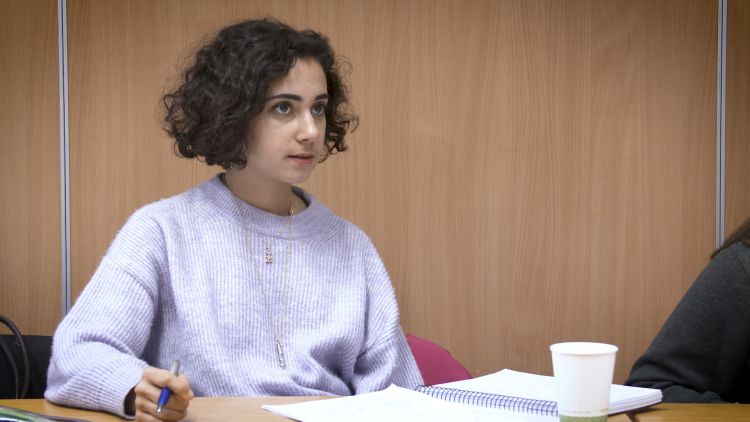Have you been eagerly refreshing your inbox, waiting for news from Cambridge? Applications are done, and now the waiting game begins such that the only question bugging your mind is; ‘When do Cambridge offers come out?’
To help answer your question, this article will clearly explain all you need to know about Cambridge, ranging from how to apply for admission to how to accept the offer, and eventually, the typical Cambridge offer timeline for 2024.
Carefully read through to get a clearer picture of what to expect in the coming months.
Table of contents
- About Cambridge
- How Can I Apply for Admission to Cambridge?
- What Happens if Cambridge Doesn’t Have a Place for You?
- How Does Cambridge Decide on Your Admission?
- When do the University of Cambridge Offers Come Out?
- How can I Accept the Offer from Cambridge?
- Are there Deadlines for Accepting your Offer from Cambridge?
- How to Apply to Cambridge Without Choosing a Specific College
- When Does Cambridge University Call for Interviews?
- FAQs on When do Cambridge Offers come out
- Conclusion
- References
- Recommendations
About Cambridge
Cambridge University, officially known as the University of Cambridge, is one of the world’s oldest and most prestigious universities. It is located in Cambridge, England, and was founded in 1209, making it one of the earliest universities to be established.
The university comprises 31 autonomous colleges and more than 100 academic departments. Each college is a self-contained community with its facilities, staff, and student body. Students are members of both the college and the university and receive a college-based and university-wide education.
Cambridge University is renowned for its academic excellence and consistently ranks among the top universities globally. It has produced numerous Nobel Prize winners, including Sir Isaac Newton, Charles Darwin, and Stephen Hawking. The university is highly regarded for contributing to various fields of study, including science, humanities, social sciences, and more.
Cambridge is among the top ten universities most often targeted by Britain’s leading graduate employers.
Read Also: I Failed University: What Happens if You Fail Your 3rd Year at University?
How Can I Apply for Admission to Cambridge?
Here are helpful tips on how to apply for admission to Cambridge.
- Ensure you’ve checked the deadline for your application. For most applicants, the deadline for 2024 entry (or deferred entry in 2025) will be 15 October 2024 (6 pm UK time). There are some later application deadlines for mature students and Foundation Year applicants.
- You can only submit one application to the University in a year. Ensure you’re happy with the course you’re applying for and your College choice.
- You will need to know our institution code (CAM C05) and your College’s campus code (you can find this on your College’s profile page). If you’re submitting an open application, you should select ‘9’ as the campus code.
- Please take a look at our advice on how to write a great personal statement.
- Ensure your school or college referee has reviewed our advice about what we’re looking for in a reference.
- Has your education been significantly disrupted or disadvantaged? If so, it may be appropriate for your school or college referee (or your doctor or social worker) to tell us about this. To do so, they must complete and submit an Extenuating Circumstances Form.
- You can nominate someone to act on your behalf about your UCAS application. But we won’t automatically communicate with this person. If you want to appoint someone to act on your behalf concerning your Cambridge application, contact the College assessing your application.
- You must complete an additional application form if you’re applying for a Graduate Course in Medicine or an Organ Scholarship. Make sure you are ready for this.
What Happens if Cambridge Doesn’t Have a Place for You?
Cambridge ensures that the best applicants are offered a place each year, no matter which College they originally applied to or were allocated to.
The College will assess the application you applied to in your UCAS application or by the College you were allocated to if you selected the open option.
Your application could make a college want to accept you, but they might not. They could also submit your application to other colleges for consideration. Colleges would prefer to admit a great applicant who applied to another college instead of a weaker candidate who applied directly or was assigned to them.
To do this, the school follows processes (known at Cambridge as ‘pools’) where Colleges can:
- Look at applications that were assessed by another College first.
- Consider these applicants for courses where they have places left.
- Make offers to the best applicants.
This means you may get an offer from a College you didn’t initially apply to.
How Does Cambridge Decide on Your Admission?
The Cambridge Colleges assess all applications. College Admissions Tutors consider all the information available together before making any decisions.
Each application part is essential, but your recent academic performance carries the most weight. Each applicant is different. The parts of an application where an applicant shows their potential can vary.
They don’t consider any part of your application on its own. For example, how well you do in your written admissions assessment is not the only factor determining your application’s outcome.
So, pending when Cambridge offers come out, applicants are given lots of opportunities to show their strengths and potential. The school considers each application individually, using all of the following information:
- Academic record
- School/college reference
- Personal statement
- Any submitted written work.
- How well did you do in your written admissions assessment
- Contextual data
- Performance at interview
Read Also: Does Oxford University Have Uniform? Oxford Clothing Traditions and Their History
When do the University of Cambridge Offers Come Out?
When an applicant is nearing closer to the decision date (mid-January), their college will typically email them or update their online notice page with some form of message that states the following: “If you have not received a decision letter by (insert time here) on the (insert date here), please contact us.” Therefore, your college’s specific decision letter timeframe may well be told to you closer to the time.
University of Cambridge applicants can expect to receive an email on (January 25) with a decision on their application.
The decision will be one of these things: you’re made an offer, or your application is unsuccessful.
If you are successful, congratulations; you’ve been offered a place for the college you applied to or from a different college due to your application being ‘pooled.’
Read Also: Do Universities Have Half Term? A Guide to University Holidays
How can I Accept the Offer from Cambridge?
To accept your offer, you must respond through UCAS and meet the conditions of your offer by the deadline set.
If you decide not to accept the offer, you can notify your College by August 1.
If you’re unsuccessful with your application, don’t let this put you off applying elsewhere. The University of Cambridge offers feedback on unsuccessful applicants on request.
Are there Deadlines for Accepting your Offer from Cambridge?
If you are made a conditional offer of study, you must either accept or decline your offer of admission by the deadline stated in your offer letter. This will be 5 weeks from the date your offer was issued. You can respond to your offer via the “accept/decline offer” link on your self-service.
See this article: Should I Drop Out of Uni? 9 Factors To Consider in 2024
How to Apply to Cambridge Without Choosing a Specific College
If you don’t mind which College you attend, you don’t have to choose. You could make an open application instead. After the closing date, your application will be allocated to a College. You’ll be allocated to a College that has received fewer applications per place for your course that year.
If you’re 21 or older, you will be assigned to one of the three mature Colleges (Hughes Hall, St Edmund’s, or Wolfson).
Making an open application or indicating a college does not increase your chance of being made an offer.
- If you decide to make an open application, your UCAS application should display ‘9’ as the campus code.
- Entry requirements can differ between Colleges. You may be allocated to a College with a higher typical offer, or that will make an offer based on particular grades in certain subjects.
We recommend that you don’t make an open application if you’re a candidate with the following:
- Unusual qualifications (check our qualifications page)
- A mobility and sensory impairment
- Other considerations that require particular support.
When Does Cambridge University Call for Interviews?
Cambridge sends out interview invitations in November. If you’re invited, you’ll usually have your interview in December. You may also be invited to a second interview with a different Cambridge College in early January.
Your interview invitation will include details of when and where your interview is, what you’ll need on the day, and how to attend.
- If you live in the UK, your interview will be in person if you applied to Gonville & Caius, King’s, Pembroke, Peterhouse, Selwyn, or Trinity College. If you applied to a different College, your interview would be online.
- If you live outside the UK, your interview will usually be online. Check the website of the College you are applying to for details of the specific arrangements at that College.
You can also read this: How To Deal With Having No Friends At University
FAQs on When do Cambridge Offers come out
Most students interested in applying to universities in the UK usually go through the UCAS (Universities and Colleges Admissions Service) system. When applying, they typically need to provide their records, letters of recommendation, and a personal statement. Occasionally, they may be required to take additional admissions tests or participate in interviews.
No, Cambridge University and Oxford University (the University of Oxford) are separate institutions, though they share many similarities, including the collegiate system and their long histories.
Cambridge University is located in Cambridgeshire, England. Its various colleges and departments are scattered throughout the city.
The collegiate system means that the university comprises individual colleges, each with its administration, staff, facilities, and student body. Students are members of both a college and a larger university. Colleges provide accommodation, meals, social activities, and some academic supervision, while the university offers lectures, exams, and degree-granting authority.
Conclusion
Now that you know when Cambridge offers usually come out, please note that there is a deadline to accept your offer, which differs from the deadline to meet your offer conditions. The deadline for accepting your offer is in your Certificate of Offer.
References
- Undergraduate.study.cam.ac.uk – Completing your UCAS application
- Cambridge-news.co.uk – When do the University of Cambridge offers to come out to applicants, and what happens next?



